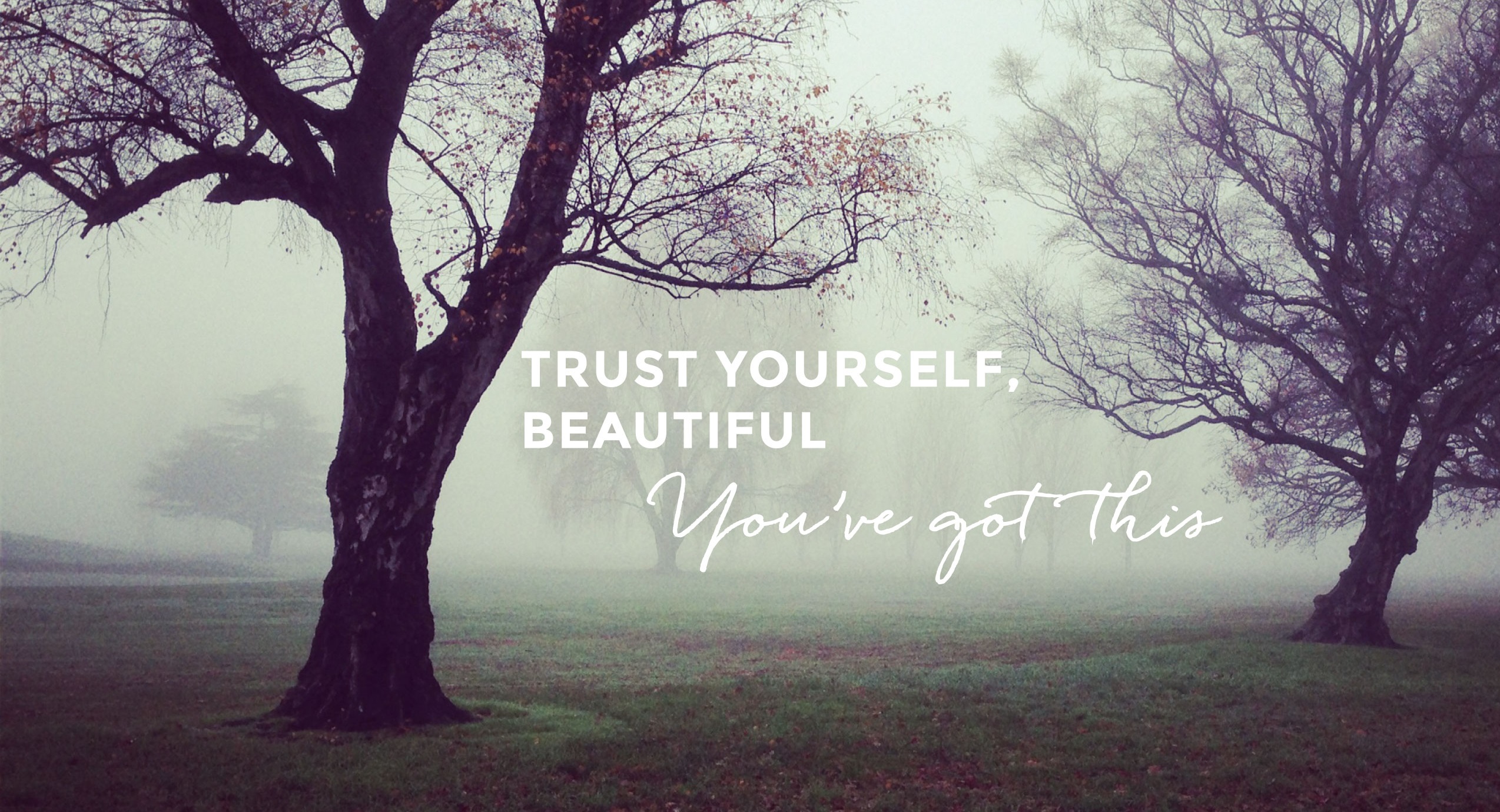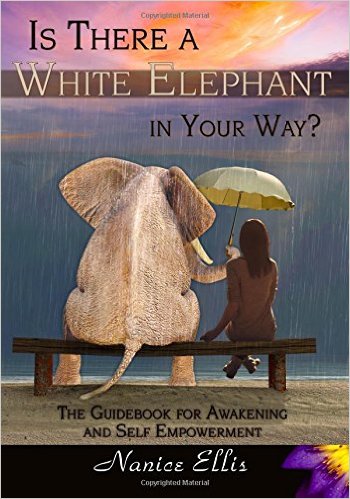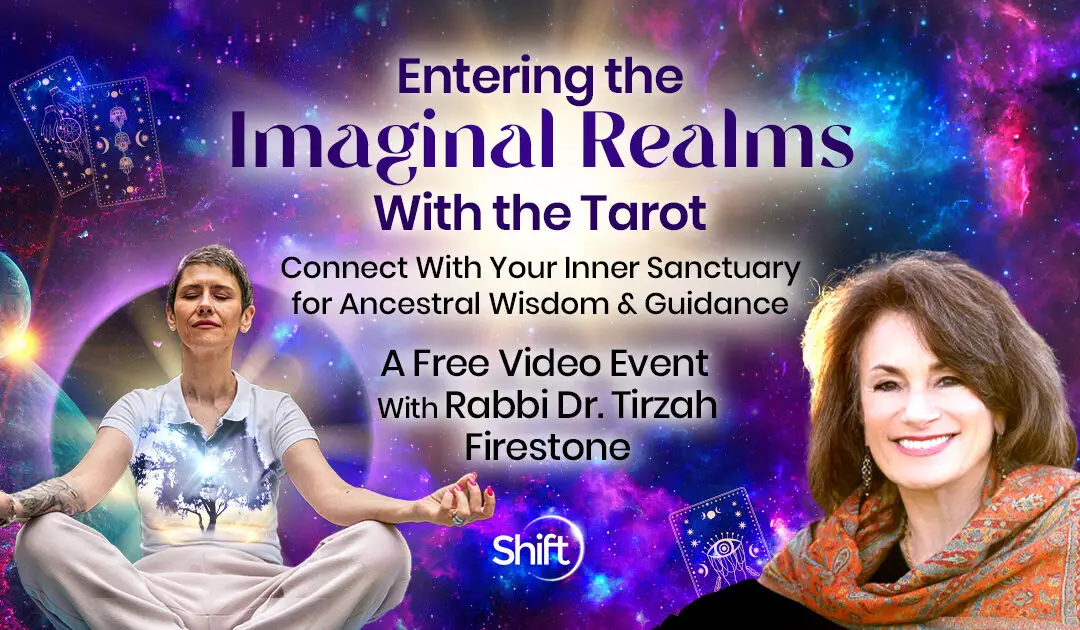By Nanice Ellis
Contributing writer for Wake Up World
Freedom is a very strong value for most people, but freedom can be misleading in many ways. You may appear to be free on the outside, especially if you “come and go” as you please, but if you are repressed by any type of controlling organization, no matter how well-meaning, you may be living in a virtual prison with invisible bars.
Although this article is written for anyone experiencing religious repression, it is not intended to point fingers or judge spiritual beliefs. Rather, the intention is to identify the serious repercussions of repression, while also enlightening a path to freedom. The first step is recognizing the dynamics of organizational repression and how it seamlessly operates through a system of disempowerment.
Repercussions of Repression
No doubt, many religious organizations use various forms of repression in order to control church members so that they obey religious doctrine, but the irony is that repression does not stop people from indulging in “sinful behavior” and, in fact, it often results in the exact opposite. Statistics and direct experience clearly demonstrate that the more rules and consequences a society has, the more “illicit behavior” develops. Although this applies to any religion where repression is pervasive, and we are not just talking about any one religion, the statistics found in Utah, USA exemplifies the cost of religious repression.
Although Utah is one of the most beautiful places on Earth, it is actually most known for its predominant religious culture. On the surface, there is a strong emphasis on family values, morals, and ethics – most people are kind and appear relatively happy, but if you look at statistics, you quickly discover that appearances are drastically deceiving, and, in fact, countless “white picket fences” cloak dysfunctional dynamics that top the national average.
Even though over 60% of Utah’s residents are Latter-Day Saints (members of the Mormon Church) and Mormonism forbids the use of drugs, including alcohol, tobacco, coffee, and even tea, Utah has one of the highest rates of prescription drug addiction in the USA, as well as related deaths caused by opiate overdose.
The church also strongly emphasizes family values, and yet Utah’s domestic violence homicide rate is 13 percent higher than the rest of the nation with domestic violence homicides accounting for 47 percent of all homicides in Utah in 2015. Utah’s child abuse statistics are also among the highest in the country, and, in fact, statistics show that more children are sexually abused in Utah than any other US state.
Taking all this into consideration, it is not surprising that a study by Mental Health America ranked Utah the most depressed state, which explains why Utah has the highest rate of anti-depressant drug use in the USA. Sadly, a devastating symptom of Utah’s excessively high prevalence of depression is the tripling of its youth suicide rate since just 2007. And, if all that is still not enough, with similarly high statistics on rape and sexual assault, Google search trends have ranked Utah the #1 porn capital of America, which is quite astounding when you consider that the Mormon religion condemns any sexual conduct outside marital relations, including pornography and even masturbation.
Although there may be ways to rationalize these statistics, they inevitably point to a serious issue that demonstrates the repercussions of repression. Many other studies conclude that the fall-out of repression commonly results in some form of escape that inevitably leads to an underworld of shame and secrecy, involving drugs, sex or other addictions, and often manifests as anxiety disorders, depression, and suicide.
As we explore the dynamics of religious repression, please remember that we are not singling out any one religion — we are talking about any religion that promotes judgment, obedience and therefore, disempowerment.
Why Repression Backfires
Repression virtually always operates through a system of fear that relies on self-judgment to drive self-regulation; this means that church members are taught to judge themselves according to religious doctrine, and consequently, their fear of disobedience is intended to prevent “ungodly behavior.”
However, this ultimately backfires because it is human nature to be attracted to those forbidden behaviors, and, therefore, those behaviors become compelling. As a result, one of two things occurs: 1) We suppress our desires, but suppression often results in psychological disorders such as anxiety and depression. 2) We act on our desires in secrecy, but the shame and secrecy of indulging in a forbidden behavior can create an addiction to the behavior or cause other types of dysfunctions.
When it comes to repression, every road leads to, and from, disempowerment — and when people feel powerless, their behaviors become dysfunctional.
The Purpose of Repression
Many religions began with pure intentions but whenever there is a hierarchy of power and the potential for monetary gain, the religion inevitably becomes a business and its church may even become a corporation. Although local church leaders may have high spiritual ethics, they don’t always realize that they work for a business and that many of the church’s rules and bylaws are intended to perpetuate profits. Just as retail stores need buyers, all religions need believers — followers — and this means that it is necessary to foster a parish that blindly follows the faith and doesn’t raise questions that could threaten the (financial) integrity of the organization — and therefore, repression is a necessary component to its survival.
Most local church leaders are completely unaware of the consequences that inevitably spring forth from religious repression, and because they have no idea that repression leads to the behaviors it is meant to inhibit, they unknowingly perpetuate the very “sins” they condemn.
When religious rules undermine the values they are meant to preserve, those rules are self-sabotaging and obsolete.
The Formula for Repression
The dynamics of repression are meant to be invisible from within the organization, but when you observe from outside, the formula for repression is easy to identify.
Step 1: Powerlessness
When a church is built on the premise that people are spiritually powerless without the religion, and must depend on the religion’s leaders, and/or following religious doctrine in order to have a relationship with God, it sets the stage for repression.
If you were born into a religion or any structured organization, you probably had no awareness of transferring your power to this entity, simply because you modeled your parents and other abiding members, and more than likely, you had no idea that you even had any power to give in the first place.
Nonetheless, any time we believe something has more power than us, power over us or the power to provide something we think we need, we instinctively relinquish power – inadvertently giving our intrinsic power to that external source. Once we give it away, organizations can use it to control us any way they desire, and in most cases, that powerlessness makes us blind to the very dynamic that causes it.
However, an external entity can never repress or imprison you unless you give it your power, and, in fact, it has no power over you without using your power against you.
Step 2: Conditional Worth
Through formal and informal religious teachings, church members are taught strict conditions and rules that must be consistently met in order to be worthy of church membership, family inclusion and good standing in the community. Acceptance and approval are the rewards for obedience, but in order to meet the rules and live up to the conditions, natural authentic expression must be repressed. And when expression is repressed, disempowerment results.
Due to unrealistic expectations, it is impossible to meet all the rules and conditions all the time, which results in inevitable failure and consequently, shame. But just the thought of disobeying religious doctrine is enough to induce feelings of guilt, impending regret, and fear of rejection, and, in fact, church members are systematically programmed to feel unworthy to such a deep extent that even secret shortcomings induce shame — in some faiths, they must even be secretly ‘confessed’ to the church organization — and this allows religions to control each member internally.
Preying upon the fear of unworthiness is a powerful strategy for repression because there is no greater manipulation than teaching people that their worth is conditioned on following rules, especially when you consider that human beings instinctively fear that unworthiness will lead to “tribal shame” and abandonment, and our primitive instincts associate this with the fear of death.
Furthermore, according to some religions, shame follows us into the next dimension, making us unworthy of eternal salvation or other heavenly rewards, and depending on the religion, if you are deemed unworthy, your punishment for “bad behavior” might be eternal damnation where your loved ones go to a heavenly afterworld while you go somewhere else.
No doubt, the horrific fear of “tribal shame” and eternal punishment perpetuates powerlessness and repression, but even holy promises and impending dread are often not enough without two more steps in the formula.
Step 3: System of Judgment
As parishioners portray an acceptable image and conform to the standards that are dictated by the organization, they play the game according to the rules by fulfilling roles, performing required duties, paying dues or tithing (donations), and acting according to expectations. In order to make sure everyone is complying, an invisible system of judgment is in place.
[pro_ad_display_adzone id=”110030″]
Although usually unspoken, church members are expected to keep each other in line through “mutual judgment”, which means that your church community of friends and family are always watching you (and you are always watching them) and if you break the rules for any reason, someone you know might report you to church officials who deal with you directly through punishment or even rejection from the church, but possibly even worse than excommunication, your “sins” are publicized through community gossip, resulting in “tribal shame” and feelings of worthlessness that can cause deep emotional trauma, and with no support from those closest to you, the repercussions of being judged ultimately manifest — as demonstrated in the kind of statistics I mentioned earlier.
One important thing to keep in mind is that that fear of “tribal shame” (being shamed by one’s community) always makes people conceal behaviors that could be judged, and this leads to secrecy — a device of disempowerment and division.
Step 4: The Invisible Power of Secrecy
Virtually all dysfunctional behaviors and dangerous social dynamics are held together by secrecy, and, in fact, the formula for repression creates the space where an ‘underworld’ of shame and secrecy can grow unnoticed.
If no one is openly talking about their issues and everyone is hiding their real thoughts and feelings because they are afraid of being judged or reported, each individual silently believes that he/she is the only one with any problems or concerns, and believing you are the only one increases the fear of judgment and consequences, thereby perpetuating more secrecy. Even though you might be part of a “tight-knit” religious community, when you have to hide your real self or face intolerable judgment and possible rejection for speaking openly, it is very common to feel all alone in your own confined world — and this often results in anxiety, depression and suicidal ideation.
Even though churches pretend to shun secrecy, they really depend on it to keep church members repressed, and, in fact, the Invisible Power of Secrecy is the glue that holds the whole illusion together. Without secrecy, large groups of people could not be repressed — only through a system of secrecy and separation can an organization maintain the blind compliance of its followers.
While repression creates a world of secrecy, secrecy perpetuates the cycle of repression.
Recovering from Repression — The Journey to Freedom
Recovering from religious repression is a journey from disempowerment to freedom, and it usually takes a fair amount of time — but in the end, nothing is of greater value.
The journey begins when you choose freedom over repression and you acknowledge that you have the right and ability to reclaim your power. But, you must do it for yourself, and you must be prepared to overcome resistance from those who are invested in your repression, as well as those who are also programmed to be repressed.
The following guide is intended to assist you on this journey:
Disentangle Your Worth:
As long as your worth is conditioned on meeting unrealistic religious expectations, you will consequently give your power away, so it is essential to begin the process of claiming your worth, and this requires you to release the need for external approval and acceptance. Deep inside, you already know that you are unconditionally worthy, and you do not need approval or acceptance from anyone. Inevitably, this means that you must stop seeking external permission, you must listen to your inner guidance and you must learn to trust yourself.
Relinquish Perfection:
Maybe your religion teaches that you must exhibit “perfect behavior” in order to be saved, but salvation cannot be found through perfection because, first of all, you don’t need to be saved by an external source, and second of all, perfection is impossible to attain because it is unrealistic, and no matter how perfect you may try to be, just like quicksand, the perpetual pitfalls of perfection will suck you into shame and secrecy at every turn. So, instead of wasting precious energy by judging imperfect behavior (yours and others), why not save yourself by practicing radical forgiveness? Subsequently, as you generously allow yourself space to breathe without perfection’s punishing hand, you will discover the space for exploration and expression, and as you slowly fill this space, you will align with freedom. (Also see: The Cure for Perfectionism (A Sneaky Name for Self-Judgment!)
Find Objective Help:
Find a counselor, therapist or open minded professional (or friend) who is not connected to the religion in any way. This should be someone who can objectively support you, and if you so choose, help you break free of repression (regardless of whether you stay or leave the religion). Also, consider that group support can ease your journey out of repression. If you cannot locate a local support group, why not create one yourself? You might be surprised who shows up to join you.
Obliterate Secrecy:
Healing the fall-out of repression requires the obliteration of secrecy because when issues are revealed, it becomes impossible for them to perpetuate in the same way. Of course, disclosure alone does not resolve dysfunctional dynamics, but without it, healing and resolution are nearly impossible.
Putting an end to secrecy dissolves the foundation of religious repression because once parishioners begin to share honestly, the truth is exposed and it is not long before the organization loses power.
Open communication will likely bring hidden issues to a head, and, as a result, things might seem to get worse before they get better, but if you can ride the tide by being true to yourself, the turbulent current will slowly begin to calm down over time, and along with your power, you can reclaim your life.
Communication and information results in empowerment and empowered followers stop following.
Plant Seeds of Higher Consciousness:
As your fear subsides and your confidence grows, consider “planting seeds” that get others asking their own questions. Humanity’s collective consciousness is waking up, so a gentle yet thought-provoking comment or question could be the tipping point, and when you provide seeds of higher consciousness, it silently communicates that you are someone others can open up to, when and if they are ready, and you might actually be surprised where those seeds sprout.
Save Only Yourself:
Supporting others on their journey to freedom is a beautiful gift, but remember you are not responsible for anyone’s awakening but your own, and the more you try to save those you love, the more you risk being pulled down to a level where you can’t help anyone.
Along those same lines, it is important to give up the idea that anyone or anything can save you. The way out of repression is through self-empowerment and this means that each person must find and express their own power. If you expect or allow someone to save you, or you try to save someone, you are only trading one form of repression for another, and, therefore, nothing really changes.
Discover the Truth:
In the process of reclaiming your power, it is usually very helpful to understand the hidden truth about the religion that seems to have power over you, so do some independent research. As you investigate, be open minded and look for “holes in the story” – where details don’t match up or history doesn’t make sense. Discovering the truth may rock your whole world but, along with many others on the same path, you will recover, and once free from repression you can build a new foundation on solid ground.
Discover God on Your Own Terms!
Most religious followers are taught that they need a “middle man” in order to commune with God, and, therefore, if you want to have a spiritual relationship with the Divine, you must depend on those “certified” as go-betweens.
The truth is, you don’t need religion or a religious “middle man” in order to connect with God, and, in fact, no matter what you have been told, a deep connection with the Divine can only come through a direct relationship. So, what would it look like to discover God on your own terms?
This answer is unique for each of us, but one thing is clear – the Divine Connection that most of us seek can only blossom when we stop looking outside ourselves. Only by going within can you cultivate an intimate spiritual relationship with God, and in this sacred space, you can finally experience the kind of unconditional love that can heal you from the inside out.
As you begin to remember who you really are, the truth will dissolve the illusion of powerlessness, shame, and unworthiness, and you will be free to express your True-Self as you fearlessly live your best possible life!
We are living at a remarkable time of Global Awakening, and, as a result, the restraints of repression are becoming obvious so that we can finally free ourselves.
You are love, you are light and all is well!
In love, grace and gratitude,
Nanice
Copyright: Nanice Ellis 2019. All rights reserved
Nanice Ellis: Recovering from Religious Repression: The Journey to Freedom
Video via Nanice Ellis on YouTube
Is There a White Elephant In Your Way? The Guidebook for Awakening and Self-Empowerment!
A new book by Nanice Ellis!
Whether you are looking to reclaim your life, improve relationships, attract more abundance or you are ready to wake-up, “Is There a White Elephant in Your Way?“ provides the revolutionary answers you have been seeking.
As this unique guidebook shows you exactly how to overcome the ego and live as your True Empowered Self, you will learn how to recognize and understand the unconscious dynamics that have run your life, and step by step, you will be able to overcome your own inner blocks and outer issues, so that, one day soon, life overflows with joy and fulfillment! Your life is a Divine Gift, waiting to be lived fully!
So… Is there a White Elephant in your way?
The answer is yes, if you ever…
- Experience irrational fear or incessant worry
- Sabotage your big dreams or undermine your dearest desires
- Battle reoccurring issues in relationships, career, health or financial matters
- Feel like you are not yourself but don’t know why
- Get inspired but lack the motivation to follow through
- Believe that your greatest potential is out of reach
- Lack the energy to live your life the way you want to live it
- Worry about what other people think (especially about you)
- Beat yourself up with criticism but can’t seem to stop
- Play small or hide your gifts despite the compelling drive to live your life to the fullest
Discover the hidden key to unlocking your greatest potential and the real secret to being limitless!
“Is There a White Elephant in Your Way?” is available on Amazon in Kindle and Paperback editions.
About the author:
 Nanice Ellis has been a professional Life Coach for 20 years, successfully coaching women and men from all over the world. She is also an author, Theta Healer and Master Neuro Linguistic Practitioner.
Nanice Ellis has been a professional Life Coach for 20 years, successfully coaching women and men from all over the world. She is also an author, Theta Healer and Master Neuro Linguistic Practitioner.
Helping people to make quantum jumps in their lives, Nanice’s very unique coaching style is often referred to as the “Nanice Effect”. By using powerful and proven manifestation techniques, Nanice coaches people to tap into the power of the Universe and live their dreams, bridging the gap from the imagination to the realization of that dream. She works with leaders, coaches, healers and anyone who wants to live life to the fullest. You can learn more about the coaching programs offered at: Coaching Programs with Nanice.
Nanice is the author of several books, including the inspirational The Infinite Power of You! and Even Gandhi Got Hungry and Buddha Got Mad! She is also the host of radio show Chai with Nanice. Her books are available at: Nanice.com/6/Books and here on Amazon.
To connect with Nanice visit Nanice.com .
Recommended reading by Nanice Ellis:
- What You Don’t Know About Karma Can Harm You!
- Raising Awake Children in a Broken School System
- The Game of Life and How to Play It!
- Escaping the Matrix of Depression – The Truth About Depression Shall Set You Free
- Overcoming Negative Thinking – The #1 Cause of Chronic Depression
- Is Ayahuasca Mother Nature’s ‘Red Pill’?
- Waking Up In The Dream – The Real Secret to Manifestation
- Heal Your Family – Heal The World
- Tired of Being a Negativity Sponge? 12 Ways to Prevent Energy Infiltration and Reclaim Your Energy
- Are Higher Vibrations Making You Sick? Integrating the Energetic Shift
- How to Heal Emotional Trauma
- Are You More Awake Than Your Family? 12 Ways to Heal Relationships When Your Family Is Still Asleep
In the free online video event, Entering the Imaginal Realms With the Tarot, you’ll embark on a transformative journey into the sacred Imaginal Realm. This one-hour experience will help you connect with your inner sanctuary, where you can receive profound guidance and clarity for your life.
During this illuminating hour, you’ll:
- Experience a guided meditation into the Imaginal Realm, connecting with your inner sanctuary—the seat of your soul—where you’ll receive insights and instructions for your life right now.
- Discover the deep connection between the Imaginal Realm and the Tarot, learning how this powerful visual tool can catalyze your journey into the inner dimensions of your being.
- Receive techniques for quieting the ego and external noise, making space to hear the spiritual wisdom already within you.
- Explore the wellspring of your life force and how it can inspire generativity, helping you move through life with purpose and direction.
- Gain practical tools to continually access the Imaginal Realm through guided journeys, visualizations, meditations, and journaling—enabling you to maintain this sacred connection in your everyday life.
By the end of this session, you’ll have a deeper understanding of how to use these practices to enhance your spiritual growth and connect to the wisdom within. Don’t miss this opportunity to unlock the transformative power of the Imaginal Realm and gain the tools you need for greater clarity and purpose in your life.
Register now for this free event and begin your journey into the Imaginal Realm today!
If you’ve found value in our articles, we invite you to support the release of our brand-new book, “Gratitude Practices for Kids: A Practical Guide for Adults to Instill a Spirit of Appreciation and Positivity in the Next Generation.“
“Gratitude Practices for Kids” brings together over 25 innovative and accessible practices designed to enhance gratitude in everyday life. This comprehensive guide is backed by 17 scientific studies, ensuring each concept is grounded in research, underscoring our commitment to nurturing growth, emotional intelligence, and positive interactions between adults and children.
We encourage you to opt for the paperback version to celebrate this new release. Dive into its fresh pages away from digital distractions, allowing you to immerse yourself in the transformative practices it offers.
Over recent years, Wake Up World has faced significant online censorship, which has impacted our financial ability to operate. Moving into book publishing represents a strategic step to secure the ongoing funds needed to continue our mission. By purchasing Gratitude for Kids, you help us keep our content free and accessible to everyone, avoiding needing a paywall. With over 8,500 articles published in the last 13 years, we remain dedicated to keeping our valuable content open to all.












